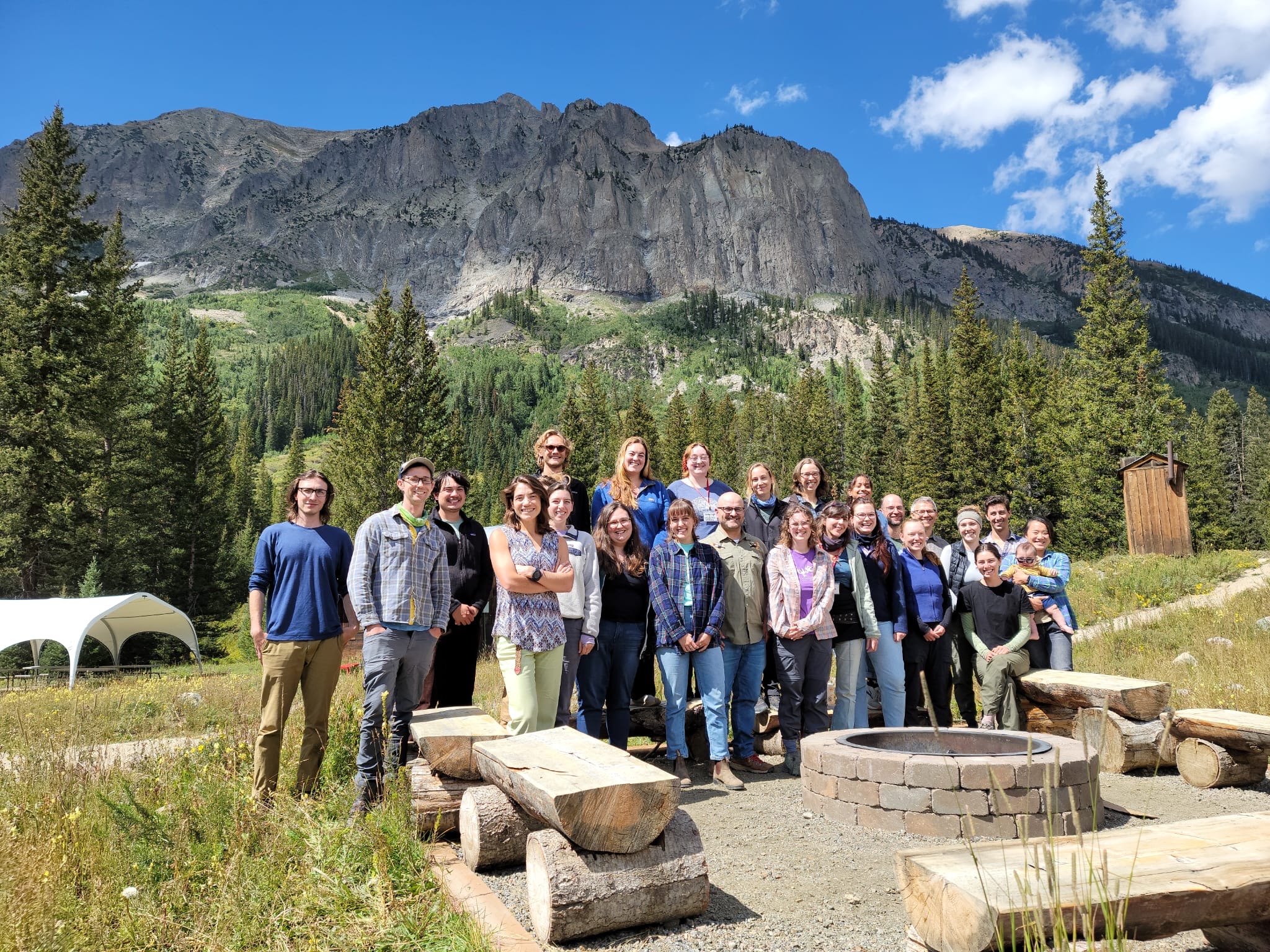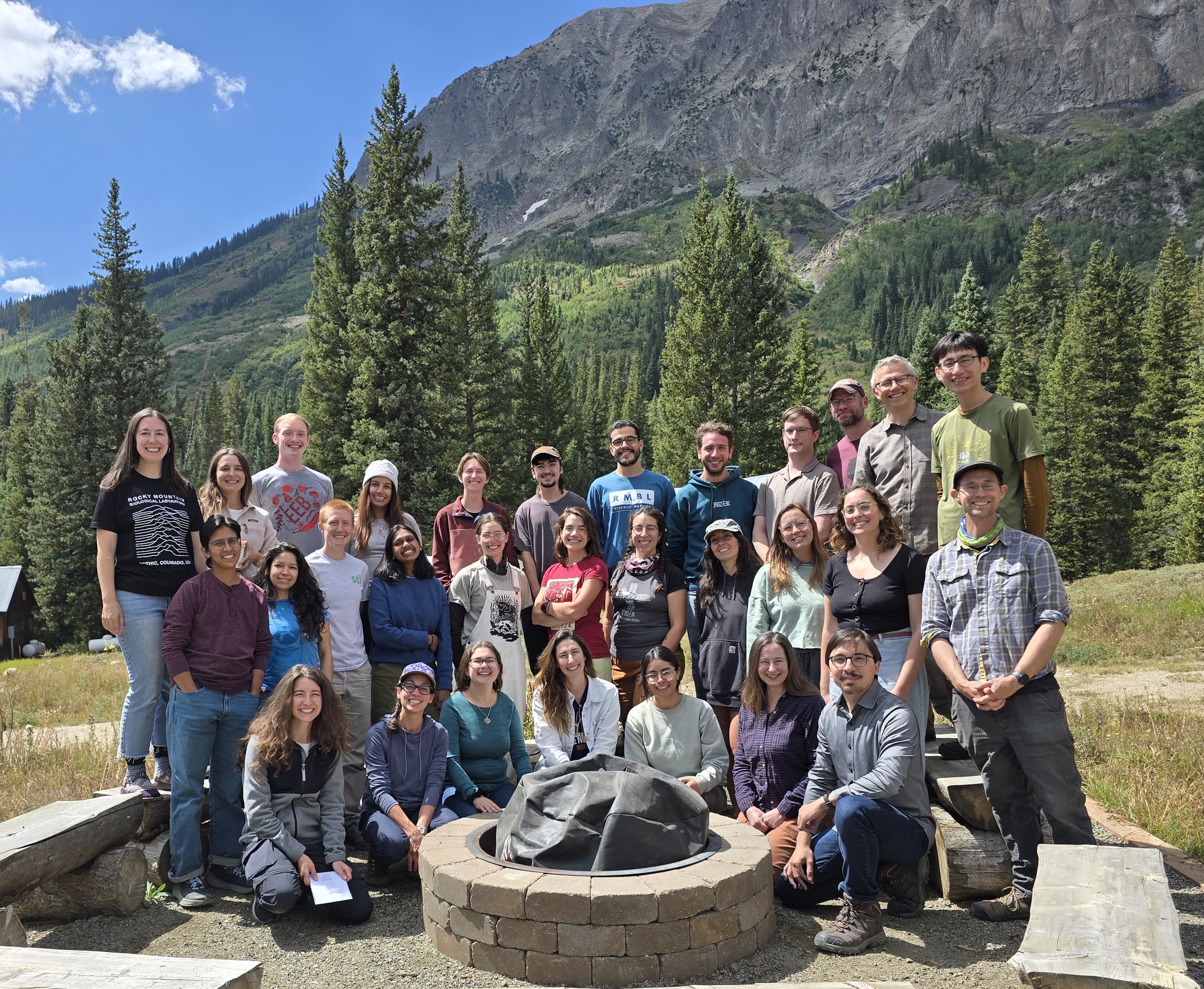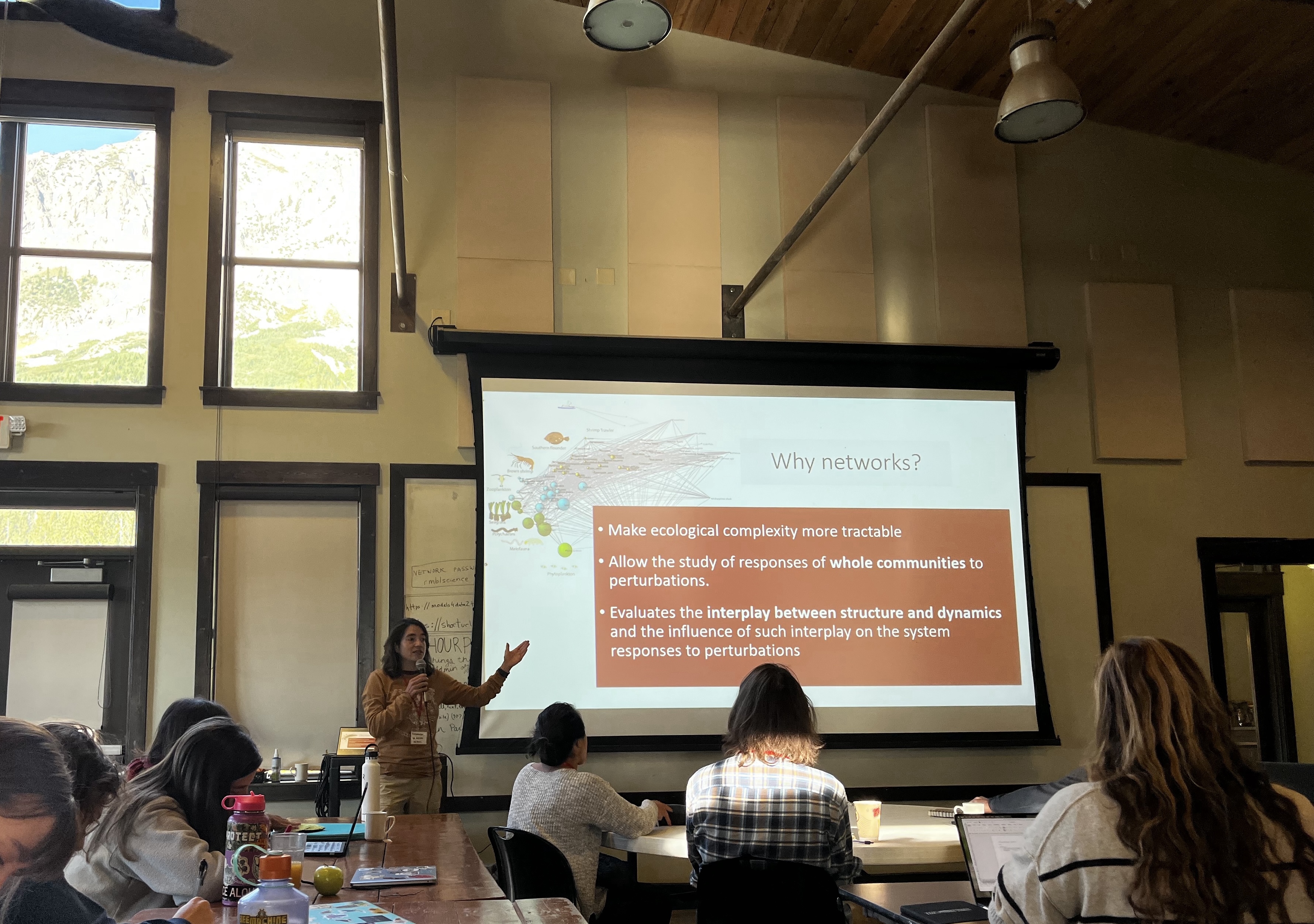Thanks
Table of Contents
The 2024 & 2025 workshops were made possible by support from the National Science Foundation to Valdovinos, Brosi & Novak (Division of Environmental Biology, Population & Community Ecology; DEB-2129757, DEB-212975 & DEB-2129759).
Thank you to all for fantastic weeks!
Testimonial 1
“Attending this workshop at RMBL has greatly deepened my understanding of the theoretical foundations and mathematical tools essential for studying the link between structure and dynamics in ecological networks. I now feel better equipped to develop integrative frameworks that merge theoretical insights with empirical data collected in the field, which will enhance our predictive ability. Additionally, interacting with researchers who share my interests has been incredibly valuable, broadening my perspective and fostering collaborations that will significantly benefit my career and research.”
Testimonial 2
“This workshop provided me with a novel understanding of ecological systems through mechanistic models and taught me how to derive and fit these models to empirical data, which I have never been taught to do before. This was the first time I was taught the process of applying ecological theory to empirical data and shown how to use mechanistic models to do so. I also really enjoyed connecting with ecologists in my specific field of research and learning about the diversity of ecological questions being tackled by students, faculty, and non-academics within this field.”
Testimonial 3
“Best explanation of an entire scientific process (from theory, to model fitting, to final application) that I’ve ever experienced. Highly recommended.”
Testimonial 4
“Having spent years as a mostly-empirical field ecologist, I came away with renewed confidence and enthusiasm about thinking mathematically. The instructors helped create an extremely collaborative and supportive atmosphere in which it was comfortable to ask potentially humbling questions. At the same time, the workshop demanded intensive theoretical, abstract thinking, periodically challenging us with short exercises in R. The combination was ideal.”

2024 Participants & Instructors:
Andrew Aldercotte (Rutgers University), Blanca Arroyo-Correa (Estación Biológica Doñana), Josh Botti-Anderson (Australian National University), Ian Breckheimer (Rocky Mountain Biological Lab), Berry Brosi (University of Washington), Annia Colgan (University of Washington), Carolyn Coyle (Colorado State University), Sofia Dartnell (University of Cambridge), Virginia Domínguez-García (Estación Biológica Doñana), Sabine Dritz (University of California Davis), Jackie Fitzgerald (Northwestern University), Stéphanie Gagnon (McGill University), María Hurtado (Universidad de Cádiz), Taran Kaur (University of California Davis), Mary McTeague (Mississippi State University), Gigi Melone (University of Wisconsin-Madison), Rebecca Nelson (University of Califoria Davis), Mark Novak (Oregon State University), Heather Poyner (Kansas State University), Julian Resasco (University of Colorado Boulder), Melina Schopler (North Carolina State University), Bucky Squier (University of California Davis), Milton Stookey (University of California Davis), Fernanda Valdovinos (University of California Davis), Susan Waters (Quamash EcoResearch)

2025 Participants & Instructors:
Rodrigo Alves (Oregon State University), Rachael Bonoan (Providence College), Ian Breckheimer (Western Colorado University) Berry Brosi (University of Washington), Manogya Chandar (University of New Mexico), Andrea Coppola (Polytechnic University of Milan), Sabine Dritz (University of California, Davis), Michael Foisy (Simon Fraser University), Molly Gans (University of Arizona), Ryleigh Gelles (Colorado State University), Shahar Gofer (Hebrew University), Emma Greenlee (Kansas State University), Yun-Chen Hsieh (National Taiwan University), Arielle Lofchick (Hebrew University), Ainhoa Magrach (Basque Centre for Climate Change), Jade McLellan (University of New Mexico), Hunter Messick (University of North Texas), Jorge Mora (University of California, Riverside), Mark Novak (Oregon State University), Rachel Potter (University of Washington), Elizabeth Reyes Gallegos (University of California, Davis), Andrea Romero (University of California, Riverside), Tierney Shaible (Wayne State University), Anita Simha (Louisiana State University), Maria Stanko (New Jersey Institute of Technology), Nathália Susin Streher (University of Pittsburgh), Karina Torres (University of British Columbia), Katie Turo (Rutgers University), Fernanda Valdovinos (University of California, Davis), Thomas Zambiasi (Indiana University)
